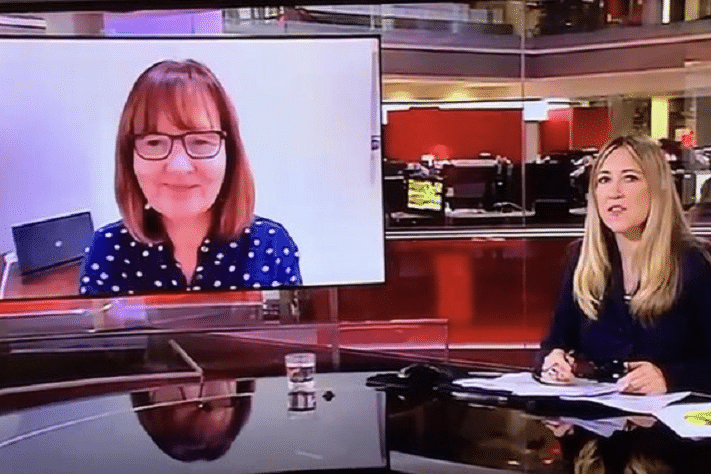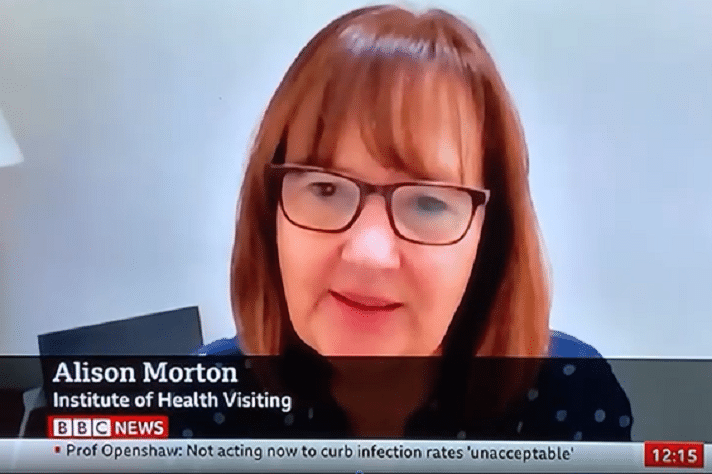25th October 2021
The iHV, as part of a coalition of 700 organisations, welcomed the Treasury’s announcement over the weekend to invest £500 million in a care package for children and families.
Funding will include:
- more than £80 million for Family Hubs,
- £100 million to support the mental health of new and expectant parents,
- £120 million investment towards other comprehensive family support programmes,
- £200 million to support the Government’s flagship Supporting Families Programme to help some of the 300,000 most vulnerable families in society through complex issues that could lead to family breakdown.
We called on the Government for major investment to support families who have faced the most challenging times during the pandemic. The Treasury has listened, and we applaud them for this. The funding will undoubtedly make a difference to many families.
But it doesn’t go far enough. We recognise that the Government faces a tight fiscal settlement, having already invested significant sums of money into almost every part of society. In terms of Government priorities, £100 billion has been committed to infrastructure projects (including buildings, roads and bridges). However, babies and young children, who represent our ‘human potential’ as a society, have not been prioritised – we have a national ‘baby blind spot’ which has resulted in zero pounds of COVID recovery funding. Against a backdrop of piecemeal child health policies and years of disinvestment, with £1 billion stripped from the public health grant, the sector is united that £0.5 billion does not go far enough.
Wednesday’s Spending Review represents a turning point for children and families. Instead of going back to how things were, this is our chance to look to the future. Where do we want to be in five years’ time? Now is the time to set the blueprint and build the infrastructure of support needed to tackle widening inequalities and improve child health and wellbeing. We have more evidence than any other generation that investing in the ‘First 1001 Critical Days’ of a child’s life is the smartest of all investments and saves money in the long run. We are currently wasting an awful lot of money as a society on costly late interventions – or getting in wrong! (estimated by the Royal Foundation to be at least £16 billion per year).
Last week, the children’s sector provided a blueprint for the government to Build Back Childhood. The challenge of building back childhood demands a joined-up approach to the needs of babies, children and young people from conception to age 25, which includes a call for 3,000 extra health visitors in the next three years.
The Government’s flagship policy to build ‘Family Hubs’ is very much welcomed – many of us worked in Sure Start centres and saw the difference that they made to children’s outcomes – the evidence speaks for itself with benefits sustaining throughout childhood. However, Family Hubs are only buildings. Their success will depend on:
- Getting families through the door – this is dependent on having a highly skilled workforce to build relationships with families and provide evidence-based support to the families who come to the Family Hubs (parents need to see a value in attending)
- Having an infrastructure of support to ‘reach out’ to the families who will not come to the Family Hubs. The evidence is clear that the families who need the most support are often the least likely to ask for help. Ensuring families are able to access support early has been shown to make the biggest difference to outcomes. As above, engaging these families, who often have multiple co-existing needs, requires a workforce with the skills to build relationships and work with these families to improve outcomes across the breadth of physical and mental health problems, as well as the social needs, affecting families.
“Having to reach out when it’s the hardest things to do makes you feel sick, shaky and you talk yourself out of that call at least 20 times before you make it – some never will!” (A parent).
Health visitors, as Specialist Community Public Health Nurses, are a highly skilled workforce who ‘reach in’ to families who are struggling – they don’t wait for them to reach out. This is important as ensuring that families are able to access support early has been shown to make the biggest difference to outcomes.
However, we currently have a significant health visiting workforce shortage in England and, despite health visitors’ best efforts, families face a postcode lottery of support. Dame Andrea Leadsom has recognised this herself, calling it a ‘Wild West’ of health visiting.
In March, the Government committed to rebuild health visiting as part of its plans set out in the Early Years Review report (The best start for life: a vision for the 1,001 critical days). The iHV believes that Saturday’s announcement of £500 million for children and families marks a clear ‘step in the right direction’ and their intention to invest in the future which we welcome.
Is this good news for health visiting? Only time will tell – all eyes are now on Wednesday’s announcement to see if the Chancellor can continue his journey. 700 leading organisations and charities have called on the Government to invest in health visiting with 3,000 extra health visitors in the next 3 years. These organisations know how this sector works, they understand the struggles that families are facing, and the infrastructure of support needed to turn this around – they can’t all be wrong. Let’s hope the Chancellor is listening.
Alison Morton, Executive Director iHV
Following the weekend announcement by the Treasury, Alison Morton was interviewed on BBC News Channel and also BBC Radio 4 Today Programme on Saturday 23 October.

Alison Morton, Executive Director iHV, on BBC News Channel Sat 23 October 2021

Alison Morton, Executive Director iHV, on BBC News Channel Sat 23 October 2021
Listen to Alison Morton’s interview on BBC Radio 4 Today Programme – the news item starts at 09:28 into the programme and Alison starts at about 10:00… with the news item ending about 13:20.
The BBC News Channel item was broadcast at about 12:10 on Saturday, but we do not have the link available to share.






